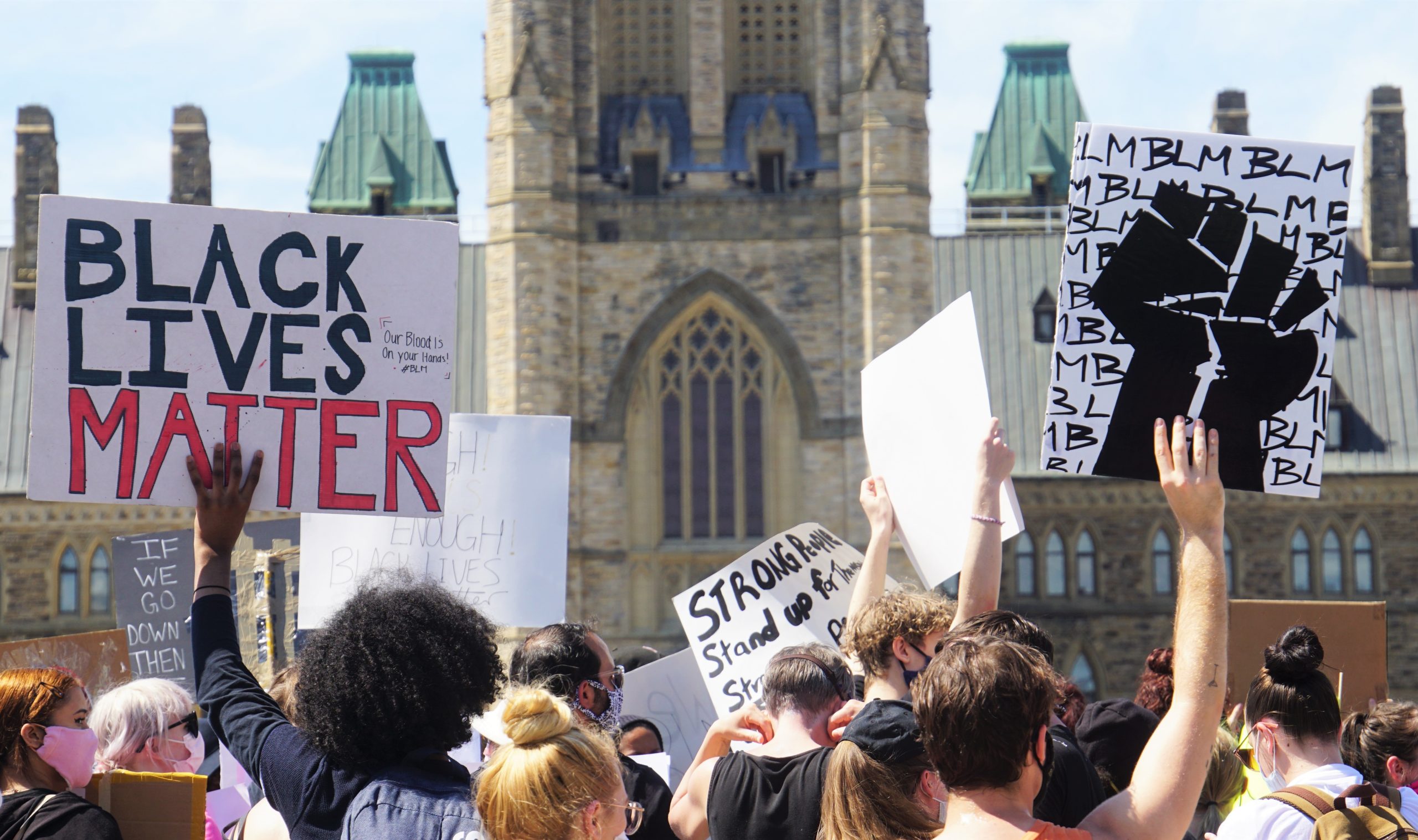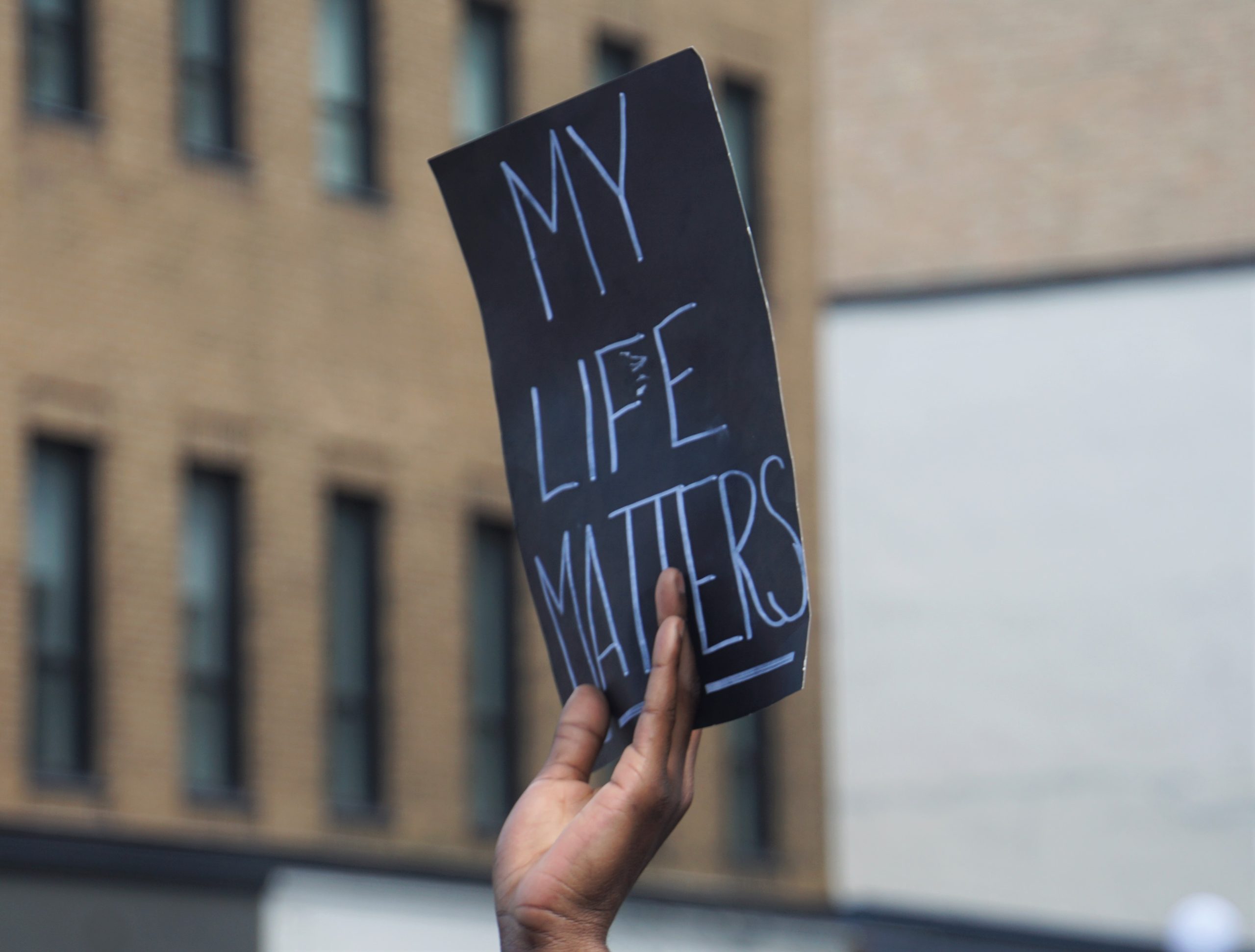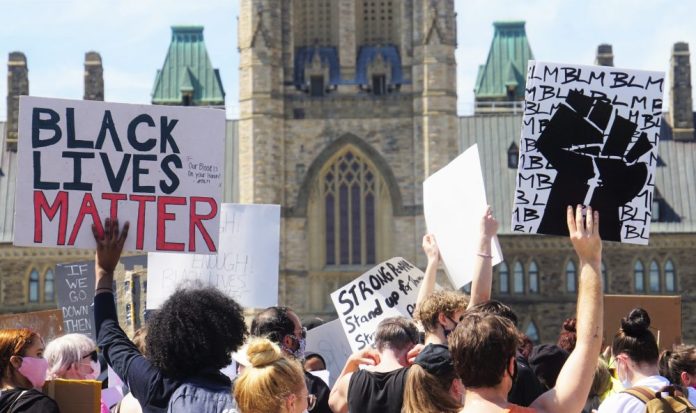
By Charlie Senack
Last Friday, over 7,000 people gathered in downtown Ottawa for the “No Justice, No Peace” anti-racism march following the death of George Floyd, who was killed by Minneapolis police on May 25.
This week, an Inter-Faith Zoom gathering hosted by local religious leaders to show solidarity with Ottawa’s Black community was interrupted by a group of racist hecklers on June 9.
“It was disturbing for all that was hearing that but, due to the credit of the leaders there, we reconnected,” said Parkdale United Church Reverend Dr. Anthony Bailey. “We were able to name it and denounce it.”
The unwelcome guests were quickly kicked from the call, but not before making painful and profane comments towards Black, Jewish and interfaith community members present.
“It shook people up and it bothered people, but we were able to regain our momentum and to reform the fact that this was the reason why we do these things,” he added. “To bear witness against diversion and against Semitic racism and exclusion.”
Bailey was the gathering’s keynote speaker. During the event, he spoke to Canada’s racist history, a lesson to educate others on important pieces of this country’s past often left out of textbooks.
Canada’s past includes 200 years of slavery — Bailey said that multiple politicians owned Black and Indigenous slaves throughout that time. In 1911, Wilfred Laurier’s government prohibited Black immigration to Canada through an order in council.
“The narrative that we tend to hold for ourselves is this sort of Underground Railroad, where we rescued all these enslaved people coming up to Canada, but we don’t tell the whole story about slavery here in Canada,” he said.
Bailey said he’s not surprised racist incidents like Tuesday’s are still taking place in Canada, noting he experiences them in his daily life.
“I’m followed in stores when I’m looking for something, I have been racially profiled by police, and I’ve experienced all kinds of things that have demonstrated to me that racism is still alive and well,” he said, adding that white privilege is something many take for granted, hiding us from many realities.
Recently, the reverend has also experienced the impacts of radicalized attacks in Ottawa firsthand.
In July 2016, Bailey was part of the healing circle supporting the family of Abdirahman Abdi. The 37-year-old was killed outside of his Hilda Street apartment during a confrontation with Ottawa Police. In the days after the incident, protests and vigils took place on Wellington Street as part of the Black Lives Matter movement.
In November of that year, a 17-year-old male was arrested and charged after a hateful spree of spray paint attacks at six places of faith in Ottawa. Parkdale United Church was among the institutions that was targeted. In court, the teenager (who could not be named due to his age) said he carried out the attacks to “threaten, defame and dehumanize” communities in the name of white supremacy.

Bailey is originally from Barbados and grew up with his family in the Montreal area. In 1976, when he was a teenager, he personally experienced the tragic effects of racism — Bailey’s brother was killed by four men in a hate crime.
“These were people who had hatred in their heart and certainly understood they had bought into false notion of race as a higher value in people,” said Bailey, recounting the attack.
“My brother was killed, they tried to kill me also, and that was a very traumatic experience.”
Following the death of George Floyd, the reverend has had a rush of painful memories.
“For the past two and a half weeks, I have been looking to my family, friends and some of my congregational members for support because it has been triggering and the narrative has been kept alive,” Bailey states. “As people who experience trauma in younger years would say, it never goes away.”
Across the world, hundreds of protests against police brutality and racism have taken place since May 25, even amid a global pandemic. In recent memory, Bailey said he cannot think of an event which has brought the world together in the same way.
He supports the peaceful protests and hopes that more people will open their hearts and minds and embrace inclusion.
“What has happened now is this moment has brought together a particular empathy,” Bailey said. “We have an opportunity to change and I think it’s important to seize it with wisdom and with perseverance to dismantle systemic racism.”
“What I would hope for people to do is seize on this momentum and not let it go,” he added. “Don’t go back to normal. Let’s really try to see what has been exposed.”
